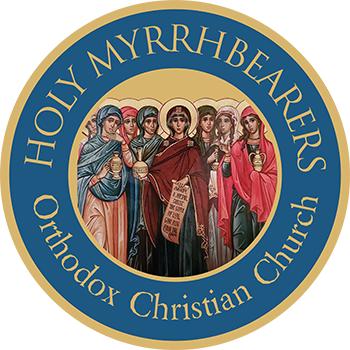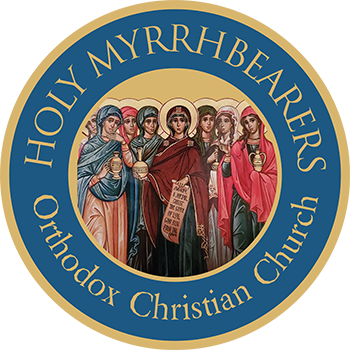What perhaps makes this more difficult for us, is the desire of many parties to present their positions as uniquely Christian. America has a long history of organizations arising to defend particular positions as “Christian,” in matters of slavery, abortions, alcohol, arms control, tax policy, sexual behavior, and free speech, to name just a few. Consider some of the organizations interested in these causes: the Moral Majority, the Christian Left or Right, Focus on the Family, American Family Association, the Manhattan Declaration, the Evangelical Climate Initiative and the American Civil Liberties Union, to name a few.
From an Orthodox perspective, some of these make their cases better than others, articulating points in agreement with Christian belief and our moral tradition. Nonetheless, the reality we face, is that the political territory, operates according to the rules of a fallen world. It is a world where deficiencies prevail and not everyone can have everything, where one wins and another loses, where motives are impure, and where the worst aspects of the fallen human nature—predominantly greed, lust for power, violence, and pride—corrupt the best intentions of many, on all sides.
The political process itself, in whatever form, is a manifestation of sin in the world. After all, God established the judges to govern ancient Israel, only to see them rejected by His people in favor of kings, with tragic results. “And you will cry out in that day because of your king whom you have chosen for yourselves, and the Lord will not hear you in that day” (1 Samuel 8:18; read the entire chapter). Indeed the kings of Israel are divided into good and bad, with the bad far outnumbering the good.
The Orthodox Christian encounters this fallen world, and must engage it and seek to transform it, through prayer and fasting, and the softening of the hearts of men and women, and their return to God. However, the Orthodox Christian must never forget that his own world has little to do with this one.
As Christ tells Pilate before his crucifixion: “My kingdom is not of this world” (John 18:36). We confuse Christ’s kingdom (of which we are a part) with the worlds, at our charge. In the first place, there is the risk that we will confuse the message of the Gospel: God became man, submitted to death, and overcame death in order for all men to live.
What can the political process do about this? Surely we must remain free to speak openly and deliberately about sin and redemption. We should fight the political battle, by prayer and fasting. We must also seek to end gross injustices, and the loss of human lives, each one bearing the image of Christ. Yet the Gospel endures in spite of persecution by the state, just as it endured and still endures.
We must also not allow an interest in politics to corrupt our mission. Our aim as Orthodox Christians, is not the transformation of the state or even your secular family into some kind of imagined “Christian dominion,” but, the salvation of souls, by uniting them with Christ and His Church. Many contemporary denominations attract members by promoting their political biases, using code words such as: “We believe in the Bible,” “We are a Bible believing church”, or “God is still speaking.”
Orthodox Christians do not “recruit” on the basis of political kinship, but rather, we guide men, women, and children to pursue and cling to Christ, receiving the life and love that flows from Him alone. We must always present ourselves not as conservative or liberal Christians, but as authentic Orthodox Christians.
Authentic Orthodox Christians cannot transfer their obligations to the state. If it is our obligation to care for our neighbor (“When did we see you hungry…?” Matthew 25:31ff), it does no good to transfer our responsibility to politicians and bureaucrats. It is our calling, not someone else’s, especially if “someone else” isn’t a Christian at all.
Authentic Orthodox Christians, cannot focus on one issue at the expense of another, as often happens with matters of abortion and war, where a given party or politician supports one and deplores the other. Unjustified killing is unjustified killing, after all.
As authentic Orthodox Christians, we must be careful not to despise our neighbor on the basis of his political beliefs. While some positions are quite clearly wrong (e.g., abortion), Christ says to “love your enemies, bless those who curse you, do good to those who hate you, and pray for those who spitefully use you and persecute you” (Matthew 5:44).
Our political discourse often leads us to degrading our opponents, thinking less of them, or considering them stupid, or, God forgive, wishing them dead!
The Holy Gospel ultimately relates to a world restored in Christ, rather than one run by politicians. Our Christian calling does not mean we must be politically indifferent, but it limits our expectations, reminding us “put not your trust in princes, in sons of men, in whom there is no salvation” (Psalm 146). For that, we can give thanks.
St. Paisios the Athonite tells us, “The most important thing is for man to grasp this most profound meaning of life, which is, the salvation of the soul.
When man believes in God and in the future life, then he understands the vanity of this present life and prepares his passport for the other life. …
This present life is not for us to have a good time. On the contrary, it is meant for us to be tested and to pass over into the future, eternal life.”
It’s easy to live like this world is everything—to get caught up in success, comfort, politics, and temporary wins. But St. Paisios reminds us: we’re just passing through.
This life isn’t about building a permanent home; it’s about preparing for the next one. Every struggle, every choice, every act of love or sacrifice, is part of that preparation. It’s not meant to weigh us down—it’s meant to focus us. It’s meant to strengthen us in our love for God and others. When we live with eternity in mind, even the hardest days have purpose.
St Paul puts the spiritual quest into stark terms: put aside the works of the flesh, which are contrary to the Spirit of God; but live according to the Spirit, crucifying the flesh with its passions and lusts. This is purification and illumination. The Fathers of the Church tell us how to do this: by self-denial and personal discipline, prayer and fasting, the Mysteries of the Church, and immersion in Scripture. No one else is going to do it for you, you have to do it yourself, and the Holy Spirit and our Church, will help you in that. You put away all that distorts the image of God, through repentance, and God will give you the grace to live in fulfillment of His image, and become more and more like Christ.
Remember, Christ is still King!





